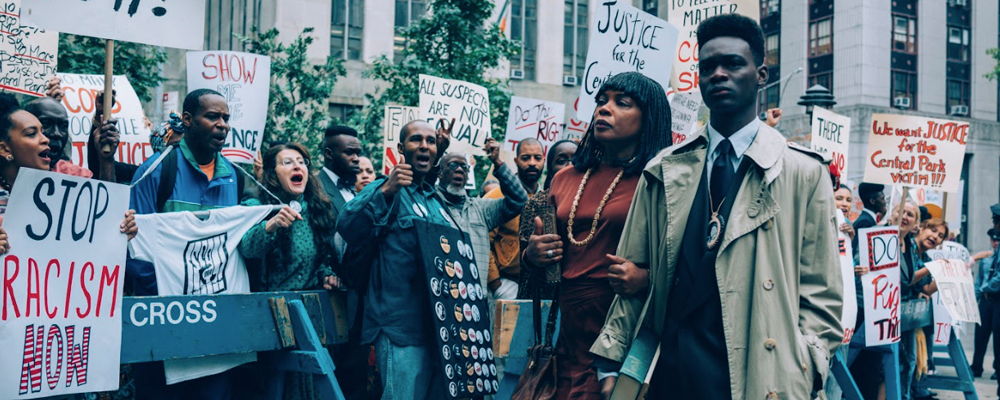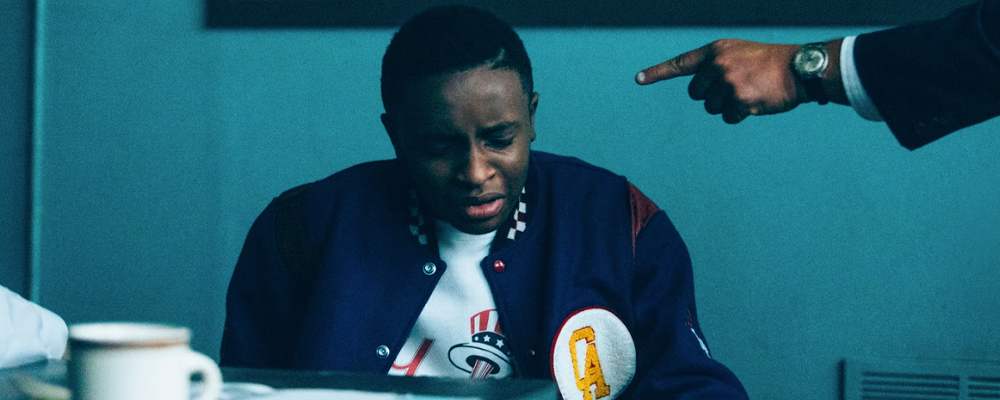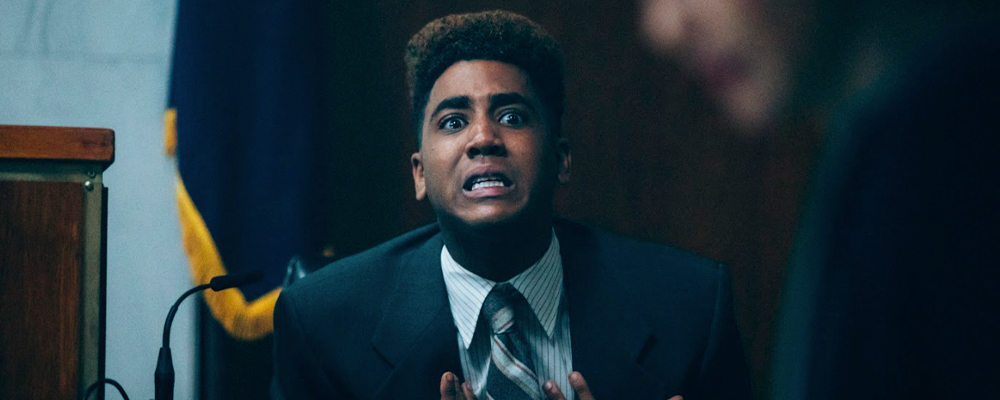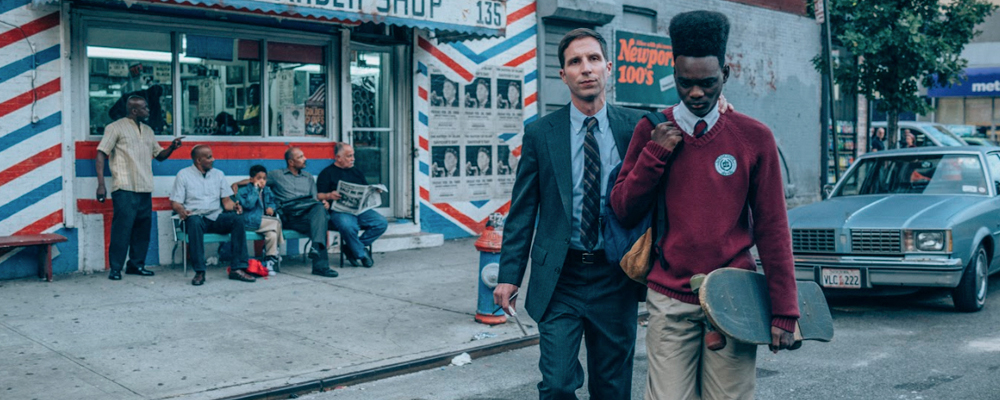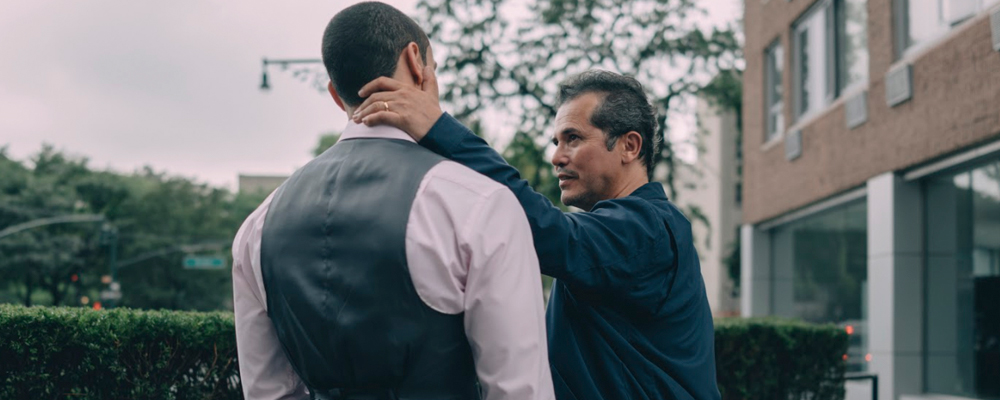‘When They See Us’: Ava DuVernay Tells the Tragic Human Story of the Central Park Five
Alci Rengifo
With the poignant force of an angry memory Ava DuVernay chronicles the story of the Central Park Five in “When They See Us.” A four-part limited series on Netflix, which continues to thankfully fund and support such projects, it goes beyond a mere true crime thriller. What DuVernay embarks on is a work that refuses to shy away from fierce social commentary, using an infamous case from 1989 to remind us that not all is equal in the land of the free.
It was April 19, 1989 in Manhattan and a group of local boys, Antron McCray (Caleel Harris), Yusef Salaam (Ethan Herisse), Raymond Santana (Marquis Rodriguez), Korey Wise (Jharrel Jerome) and Kevin Richardson (Asante Blackk) find themselves trapped in a nightmare. The five were walking around Central Park in what appeared to be a regular evening of people hanging out, some involved in revelry and other activities. But in another corner of the park the police are investigating the horrific case of a jogger, Trisha Meili (Alexandra Templer), found raped and beaten. Left in a coma she has not identified her attacker. Determined to nab any suspect, Linda Fairstein (Felicity Huffman), head of the NYC District Attorney’s Sex Crimes Unit (and occasional novelist), leads a hunt suspiciously obsessed with the local black population. In the ensuing roundup Antron, Yusef, Raymond, Korey and Kevin are taken in for interrogation. Beaten, coerced and threatened by raving detectives, the five youth are pushed into delivering an odd, fractured series of confessions to the rape, most of the time making little sense. But it’s enough for Fairstein to claim justice is being served. Dressed in urban gear, associated with racist popular terms for rampaging black youths like “wilding,” it’s easy for the police to sell these kids as guilty before evidence is even presented. With their families feeling helpless, the five are taken to trial, facing a media storm and years behind bars.
The case of the Central Park Five was one of those moments from the late 80s and early 90s, like the Rodney King tape, which exposed the lingering, deep racial divides in the United States. DuVernay, who gained real prominence with her 2014 “Selma” about Martin Luther King, Jr. and the struggle for voting rights in 1960s Alabama, finds a powerful balance between social topics and personal drama. When we read about these cases or see news reports, it is easy to forget the human toll. Before the story becomes a visceral, overwhelmingly angry scream, DuVernay lets us see Antron, Yusef, Raymond, Korey and Kevin being normal kids, goofing around in an urban landscape beset by inequality. The soundtrack brims with hits from the era like “Microphone Fiend” by Eric B. and Rakim. But when the five doomed souls enter Central Park on that fateful night of April 19 the landscape darkens, the lighting becomes ominous and a group of older-looking kids punch a white man. But DuVernay isn’t passing judgement on a community, she’s capturing how for working class minorities the place where they live make them an easy target when the authorities come sniffing for scapegoats.
Some of DuVernay’s very best work is in this limited series. It’s an absorbing rebound after last year’s slightly bloated Disney production “A Wrinkle Time.” Like “Selma” and DuVernay’s documentary “13th,” this is a work full of a special kind of anger, that of an artist urgently attempting to get something across to the audience. Some of the most harrowing scenes are the meticulously-edited and written moments where the five kids are bullied and threatened by detectives into concocting confessions. Because the casting is so spot on DuVarney captures the madness of some big, brutish detective like John Hartigan (Bruce MacVittie) bullying a 16-year-old into admitting rape when the kid barely understands the meaning of the action itself. One of the most emotionally shattering moments occurs when Antron’s father Bobby (Michael Kenneth Williams) convinces his son to make a false confession, explaining with a desperate plea how as African-Americans they have little rights under the boot of cops committed to nabbing a suspect. The sense of entrapment, evoked with close-ups and gritty cinematography, make us realize to for some communities in this country their view of law enforcement can become the equivalent of East Germans living under the Stasi. Raymond Santana Sr. (John Leguizamo), who cares for a mother who doesn’t understand English, can also only watch helplessly as his son Raymond is barked at by the cops into confessing. As the case becomes a media sensation DuVernay makes a quite unsubtle political statement by focusing moments on how a certain real estate figure, Donald J. Trump, openly campaigned to bring back the death penalty specifically to punish the five teens. Using brilliant tact, DuVernay lets Trump speak for himself via news clips from the time.
The moments in court, which cover the span of the second episode, go beyond mere, typical TV trials. With meticulous detail DuVernay shows us the absurdity of the injustice imposed on the five teens. Their testimonies don’t go together, or even correlate with the details of the attack. Korey Wise, via a fantastic performance by Jharrel Jerome, staggers on the stand, admitting he can’t read, so he is unable to read back his own signed “confession” for the jury. Fairstein will shamelessly claim the evidence is conclusive, when even the DNA found at the scenes proves the kids didn’t do it. The prosecutor, Elizabeth Lederer (Vera Farmiga), registers on her face that she knows deep down this is all wrong, but she has a job to do. It doesn’t help that class differences even affect the parents, as some can afford better lawyers than others. We get a divorce lawyer (Blair Underwood) and Joshua Jackson of “The Affair” as Mickey Joseph, the best of the lot who can take on Lederer. Those well-versed in this case know the rest, how the five were convicted and sent to prison for years. DuVernay in the third and fourth episodes turns this into a story of reckoning and the human cost of injustice. Now haunted men, the first four emerge from jail. Antron (Jovan Adepo), Yusef (Chris Chalk), Kevin (Justin Cunningham), Raymond (Freddy Miyares) return to changed homes and neighborhoods. Raymond in particular has to deal with his father’s new wife who will bring him down by calling him a “rapist.” What DuVarney brings out is the scarred personalities and minds that the system leaves in its wake.
Crucial to bringing home the human toll of the case is the wonderful supporting cast playing the five teens’ families. Marsha Stephanie Blake as Antron’s mother Linda has a heart-wrenching monologue about suffering along with her son as he serves his time, Kylie Bunbury is memorable as Angie, Kevin’s sister who even feels guilt over dating because she will be enjoying the kind of life her brother can’t have.
Eventually the Central Park Five would be exonerated decades later. In 2002 Matias Reyes, a convicted killer confessed to the crime and in 2014 the five received a $41 million settlement from the city. But the deeper meaning of “When They See Us” is that this is not an isolated incident, or a freak occurrence. The tone, observations and overall message encompass pressing issues in our social fabric. This case happened 30 years ago, but it could happen again today or tomorrow.
“When They See Us” premieres May 31 on Netflix.

